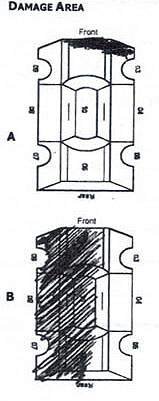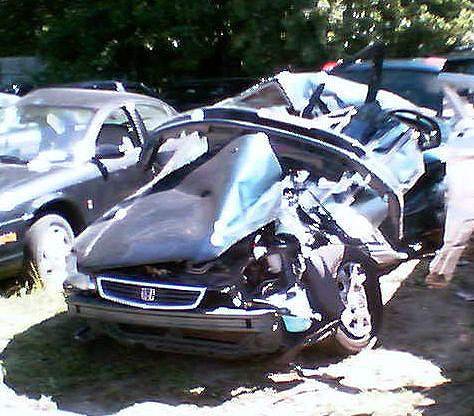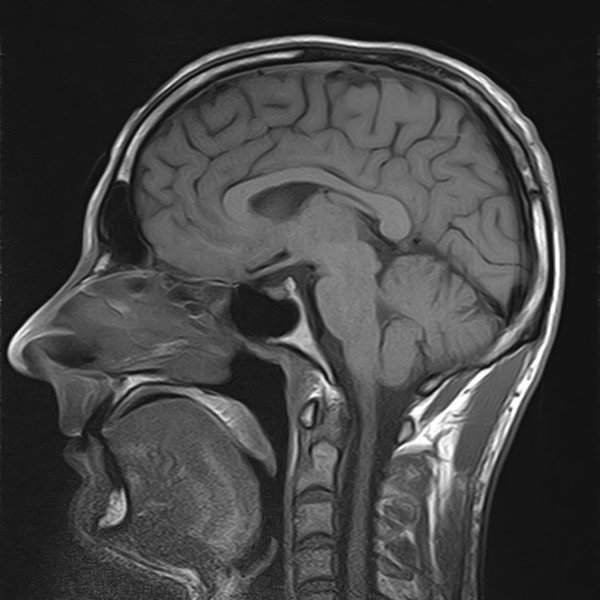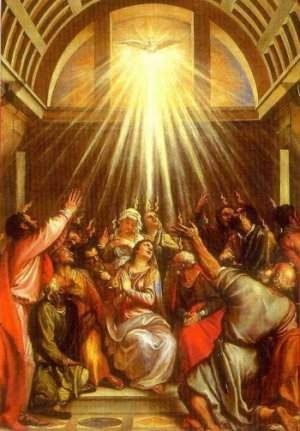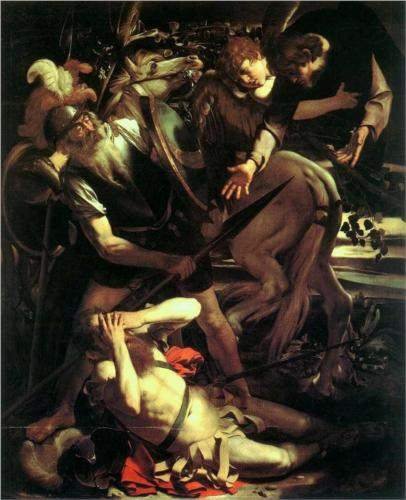
Conversion of Saint Paul (1600), by Caravaggio. (WikiPaintings.org)
My wandering had come to running and rebellion. My soul was crying out — I was lost, and could not find my way — but I was hurt, angry, fighting, and unwilling to humble myself before God, to lay down myself and seek in Him the guidance I needed.
Thank God for a praying mother — God’s messenger in my life, who would not let me go. She harped on (so I called it then) my need to get back in church and to get right with God — and I resisted. I said some cruel and terrible things to my dear mother during this time. But I remember one moment in particular when I retorted, not so much in annoyance as in desperation, “If God wants me to turn my life around, He should stop me in the road like he did Paul.” If only I had the certainty of such a direct encounter, I thought.
But Saul, still breathing threats and murder against the disciples of the Lord, went to the high priest and asked him for letters to the synagogues at Damascus, so that if he found any belonging to the Way, men or women, he might bring them bound to Jerusalem. Now as he went on his way, he approached Damascus, and suddenly a light from heaven flashed around him. And falling to the ground he heard a voice saying to him, “Saul, Saul, why are you persecuting me?” And he said, “Who are you, Lord?” And he said, “I am Jesus, whom you are persecuting. But rise and enter the city, and you will be told what you are to do.” The men who were traveling with him stood speechless, hearing the voice but seeing no one. Saul rose from the ground, and although his eyes were opened, he saw nothing. So they led him by the hand and brought him into Damascus.—Acts 9:1-8
In August 2006, I set out on a misguided errand of mercy, one with good intentions but ultimately selfish, sinful motives. The insane plan was to involve a major road trip and multiple hops by plane, flying out of Cleveland, Ohio — only I never made it to Cleveland. A few miles north of Columbus, while attempting to make a U-turn in the middle of a two-lane highway, my car was broadsided on the driver’s side by a dump truck loaded with concrete going some 50 miles per hour.
I have no memory of the accident. I don’t know by what mercy — whether angels, or saints, or gifted safety engineers — my body was spared being crushed with the rest of the driver’s side of my car. I was airlifted from the scene to Ohio State University Medical Center with severe head trauma. Arriving in the emergency room, I was completely unresponsive — I bottomed out with a 3 on the Glasgow Coma Scale, indicating deep coma or death. “A brick or a piece of wood has a Glasgow Coma Score of 3. It’s dead,” says a recent report.
It was August 15 — the feast of the Assumption.
When Jesus entered Capernaum, a centurion came forward to him, appealing to him, “Lord, my servant is lying paralyzed at home, suffering terribly.” And he said to him, “I will come and heal him.” But the centurion replied, “Lord, I am not worthy to have you come under my roof, but only say the word, and my servant will be healed. For I too am a man under authority, with soldiers under me. And I say to one, ‘Go,’ and he goes, and to another, ‘Come,’ and he comes, and to my servant, ‘Do this,’ and he does it.”—Matthew 8:5–9
I know that there were dozens if not hundreds of dear people praying for me from the moment of the crash — many even whom I did not know, thanks to prayer chains in half a dozen different churches. But most of all my beloved family — my parents and brother and grandparents and aunts and uncles and cousins — were standing with me in prayer. And I have no doubt that my family in heaven, all my dearest saints, were praying for me, too. My parents came to my side as quickly as they could, and didn’t leave until I was home.
Somehow, I was still alive, but I remained insensible. The doctors offered no immediate prognosis. Given the elasticity and unpredictability of the brain, the best they could offer was “wait and see.” The only other injuries I suffered, incredibly, were a few broken ribs; a cracked sacrum; a nasty, black-and-blue bruise on my left hip, where the imploding car door had hit me; a sprained left wrist, which I tend by habit to thread through the handle of the steering wheel; and just a few deep cuts on my forearms and the left side of my face where I had been struck by flying window glass. My car, a 1998 Honda Civic (may she rest in pieces), had no side curtain airbag, but the driver’s side frontal airbag did deploy.
When Jesus heard this, he marveled and said to those who followed him, “Truly, I tell you, with no one in Israel have I found such faith.” And to the centurion Jesus said, “Go; let it be done for you as you have believed.” And the servant was healed at that very moment.—Matthew 8:10, 13
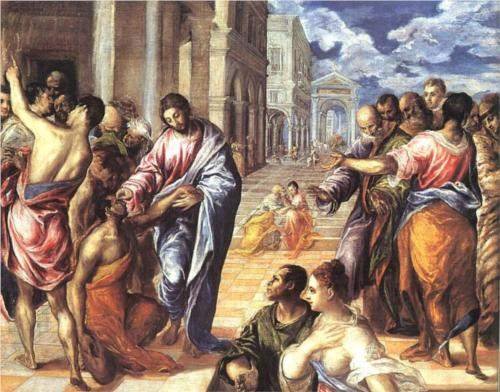
Christ Healing the Blind (1578), by El Greco. (WikiPaintings.org)
I remained out of my senses for about a week. Then, gradually, I began to return. My memories from this time are very foggy, like a half-remembered dream fading in the light, or like my earliest memories of childhood. Just as my brain was still forming as a child, my brain then was snapping back from a major traumatic injury. The world seemed so unreal; it was another few days before I could admit that this had really happened.
Even after I regained consciousness, my prognosis remained doubtful. It would be a long road to recovery, the doctors said. I would most likely suffer long-term deficits. I was little aware of this at the time. I have little memory of my time in the hospital now at all.
Surely he has borne our griefsand carried our sorrows;yet we esteemed him stricken,smitten by God, and afflicted.But he was wounded for our transgressions;he was crushed for our iniquities;upon him was the chastisement that brought us peace,and with his stripes we are healed.All we like sheep have gone astray;we have turned—every one—to his own way;and the LORD has laid on himthe iniquity of us all.—Isaiah 53:4–6

The Assumption of the Virgin (1670), by Bartolomé Esteban Murillo. (WikiPaintings.org)
Some week and a half after the accident, I was released from the main hospital, but was still in no shape for travel. I was moved to the Dodd Rehabilitation Hospital on the OSU campus. After a week and a half there — with time spent with physical, occupational, and speech therapists — I was released to go home. Against medical advice, I returned to school, to the semester whose start I’d just missed, to hobble through a course I wanted to take, whose professor was about to retire. Within three months, I was back to driving and getting around on my own. The only lingering effects of the accident were a slight and occasional stutter or slurring of words, a minor impairment of my short-term memory, and an inability to process alcohol.
Is anyone among you suffering? Let him pray. Is anyone cheerful? Let him sing praise. Is anyone among you sick? Let him call for the elders of the church, and let them pray over him, anointing him with oil in the name of the Lord. And the prayer of faith will save the one who is sick, and the Lord will raise him up. And if he has committed sins, he will be forgiven. Therefore, confess your sins to one another and pray for one another, that you may be healed. The prayer of a righteous person has great power as it is working.—James 5:13–16
Medical professionals are reluctant to label miracles; the most anyone would say was that I made a remarkable recovery. But over the next months, seeing rehab doctors for periodic checkups and reading literature online, it dawned on me just how remarkable it was. Only some 20 percent of patients with initial scores of 3 on the Glasgow Coma Scale survive. Of these, less than half have what is termed a “good outcome” (a 4 or 5 on the Glasgow Outcome Scale); the gross majority remain in a persistent vegetative state or have permanent, severe disabilities. Even of those who do well, most face years of painful and difficult recovery, and never regain full function. A recovery as complete as mine, in the brief time in which I made it, is virtually unheard of.
As I was leaving the hospital, I signed up for a long-term medical study of traumatic brain injury outcomes. Every year or two, someone from Dodd calls me to ask how many hours a day I’m able to be out of the house, how much assistance I require getting dressed or using the bathroom or walking, if I’m able to drive a car or operate heavy machinery, etc. I think my answers — that I suffer no functional impairment at all — are entirely anomalous to their expectations and probably skewing their results. And I’m reminded just how blessed I have been.
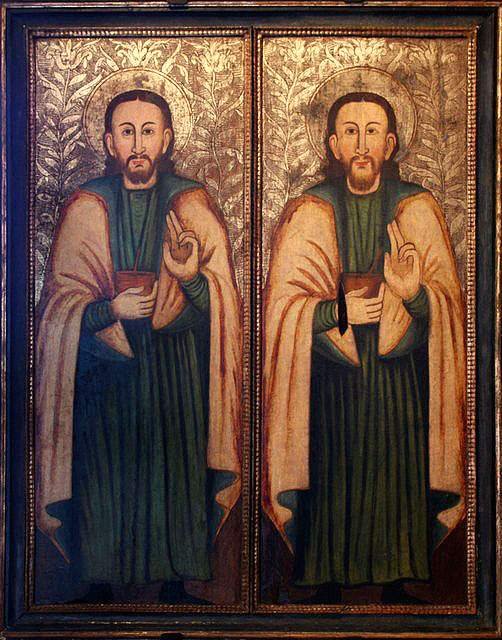
Icon of Saints Damian and Cosmas, physicians used by God and martyrs to the Christian faith. (Wikipedia)
The fact that I even survived the impact of the accident; the fact that I sustained such a severe injury to my brain and lived; the fact that I recovered as completely as I have, in such a time as I did — convinces me with certainty that my survival was a divine miracle. I believe that God, more often than through extravagant or ostentatious wonders, works His healing and mercy through the mundane, through natural processes, through the hands of physicians and through medicine (Sirach 38:1–15). I know that my healing was for me, and that my testimony will not convince anyone else; but as a pivotal juncture in my road to Rome — as the turning point of my life — I am compelled to share it.
O LORD, rebuke me not in your anger,nor discipline me in your wrath.Be gracious to me, O LORD, for I am languishing;heal me, O LORD, for my bones are troubled.My soul also is greatly troubled.But you, O LORD—how long?Turn, O LORD, deliver my life;save me for the sake of your steadfast love.For in death there is no remembrance of you;in Sheol who will give you praise?—Psalm 6:1–5
Since my childhood, I’ve felt a close affinity with the Apostle Paul. I asked for his lot — and that, I believe, is what I got. I don’t know what I saw in the road that day — whether there was a literal flash of light, or whether a big blue dump truck was the message meant for me — but I was halted in my reckless path. I believe St. Paul was interceding for me even then.
Looking back today, I can only give all the glory to God. I have no doubt that I am here today as a testimony to His overpowering mercy and healing. I did not deserve this, by any merit of my own or due to any faith of my own. I am not even sure that if I’d died that day, I could have been saved. But the Catechism teaches that God heals the body when it is conducive to the healing and salvation of the soul: I was certainly in need of such healing. I can only credit the faith of the many who prayed for me — my parents who would not let me go — and the overabundant mercy of my God.
In the days and months that followed, as I fully grasped what had happened, the question began to eat at me: Why? Why had I survived when so many people die? Why had I been healed, when so many others are not? Why should God be so faithful to me, when I had all but abandoned Him? Who was I to deserve such a gift? My parents insisted that I owed my life to God — but rather than grateful, I was confused, even troubled. I did not have a true grasp of His grace and love and mercy. As I recovered, and yet continued my stubborn refusal to turn my life to God, my mother grew frustrated — and I grew angry. The accident had brought me to my knees, but I had not yet laid down the fight. There was yet one more showdown.


